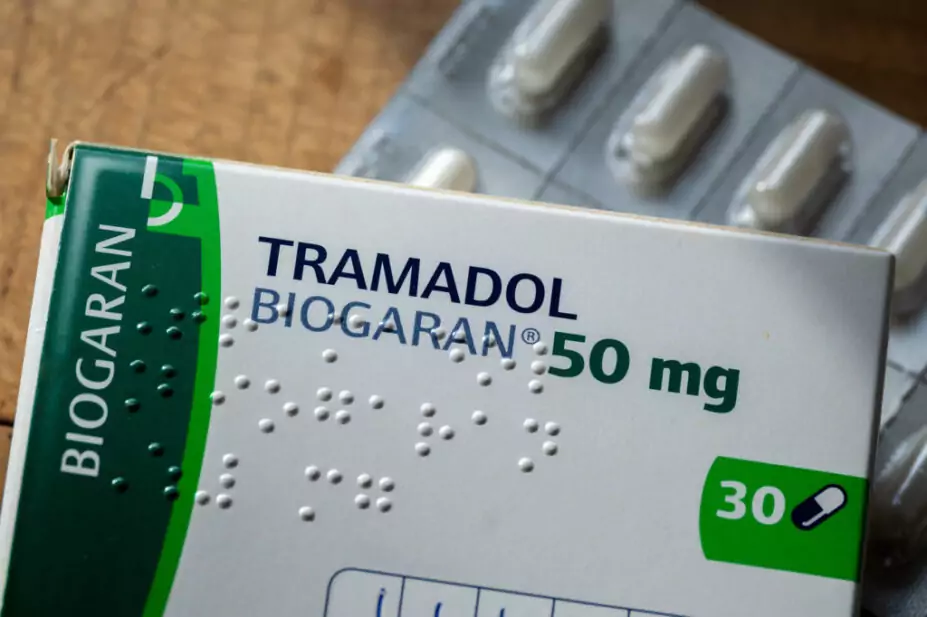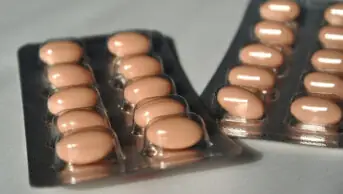
Shutterstock.com
NHS England has been told it must take action to raise awareness about the potentially fatal interaction between tramadol and warfarin, following the death of a patient.
Graham Danbury, assistant coroner for Hertfordshire, issued a prevention of future deaths report — a mechanism for coroners to recommend actions that could prevent future deaths — on 1 December 2023, after Susan Gladstone, from Hertfordshire, died on 8 January 2021 from a bleed in the brain.
An inquest, which ended on 20 November 2023, concluded that Gladstone “died as a result of a generally unknown interaction between warfarin and tramadol, which caused exceptional thinning of her blood”.
Gladstone was prescribed tramadol twice for lower back pain: on 20 December 2020 and 4 January 2021. According to the report, she had been taking the anticoagulation medication warfarin for “a number of years”.
Danbury noted that Gladstone had an international normalised ratio (INR) almost 12 times the normal level when she was admitted to Lister Hospital in Stevenage, Hertfordshire, on 6 January 2021. The INR is a blood test used to test blood clotting times in patients taking warfarin.
The NHS says that most people taking anticoagulants have a ratio of between 2.0 and 3.5.
The report says that “Tests showed her INR to be 11.6. Immediate action to reverse this was taken. The evidence showed that this level of blood thinning was likely to cause significant bleeding, including in the brain. The cause of death was bleeding in the brain.”
Warfarin is not listed among the interactions for tramadol in the British National Formulary (BNF).
The report continues: “There was nothing to warn the prescribing doctor of any possible interaction. I found on the balance of probabilities that an interaction between tramadol and warfarin had caused this dangerous, and in the event, fatal INR to develop.
“In my opinion, actions should be taken to prevent future deaths and I believe you, NHS England, have the power to take such action.”
The report added: “A comment from the Anticoagulation Service in relation to tramadol reads: ‘Known interactor although this is not listed in the BNF, from experience we have seen that this can increase the INR’.”
A spokesperson for the BNF said the interaction would be included in the BNF from January 2024 in response to the assistant coroner’s report.
“We are sorry to hear of the death of this patient as a result of a possible interaction between tramadol and warfarin,” they said.
“There have been case reports of patients taking warfarin having increased INRs when also given tramadol, although an interaction does not appear to be established.
“The BNF will include an interaction message between tramadol and warfarin and other coumarin anticoagulants for the next monthly update and the next print edition of the BNF.”
The report says that NHS England is under a duty to respond to the report by February 2024, instructing that the response “must contain details of action taken or proposed to be taken, setting out the timetable for action” or must explain why no action is proposed.
NHS England declined The Pharmaceutical Journal’s request for comment.
A spokesperson for the Medicines and Healthcare products Regulatory Agency (MHRA) said: “The report was addressed to NHS England and the MHRA will be contributing to their response with the timeframes stated.
“As with all effective medicines, both tramadol and warfarin can cause side effects in some people. The known risk associated with tramadol and use of anticoagulant medication, such as warfarin, in some patients is highlighted in the summary of product characteristics and patient information leaflet for tramadol.”
Commenting on the coroner’s report, Theresa Murphy, chief nurse at East and North Hertfordshire NHS Trust, said the inquest “identified some peripheral learning for the trust”, but “did not raise any concerns” about the care she received.
“On being notified of the new medication that Susan had been given, a review was arranged with the anticoagulant clinic. Sadly, before this review took place Susan became unwell, came into our care and sadly died.
“In his report, the coroner noted the interactions of the medications prescribed is not widely recognised and therefore issued the prevention of future deaths notice to NHS England in order to raise awareness, and ensure that all organisations are aware of the potential interactions,” Murphy said.
- This article was updated on 14 December 2023 to include a comment from a spokesperson for the BNF
4 comments
You must be logged in to post a comment.



I wonder if race and or genetics plays a significant role in terms of this interaction. Will be interesting to read further findings of the MHRA.
The patient in this article is my mum Susan, I was hoping that more awareness was going to be made, it’s devastating to the level of people are taking them together, even more devastating the result of what the outcome is, unfortunately this article is 95% accurate.
My mother-in-law was prescribed tramadol and she was on blood thinners. She developed two large blood clots in each lung and her leg - she passed.
I am curious to find out if the interaction is purely with vitamin K antagonists, or if the bleed risk is increased for DOAC patients prescribed Tramadol